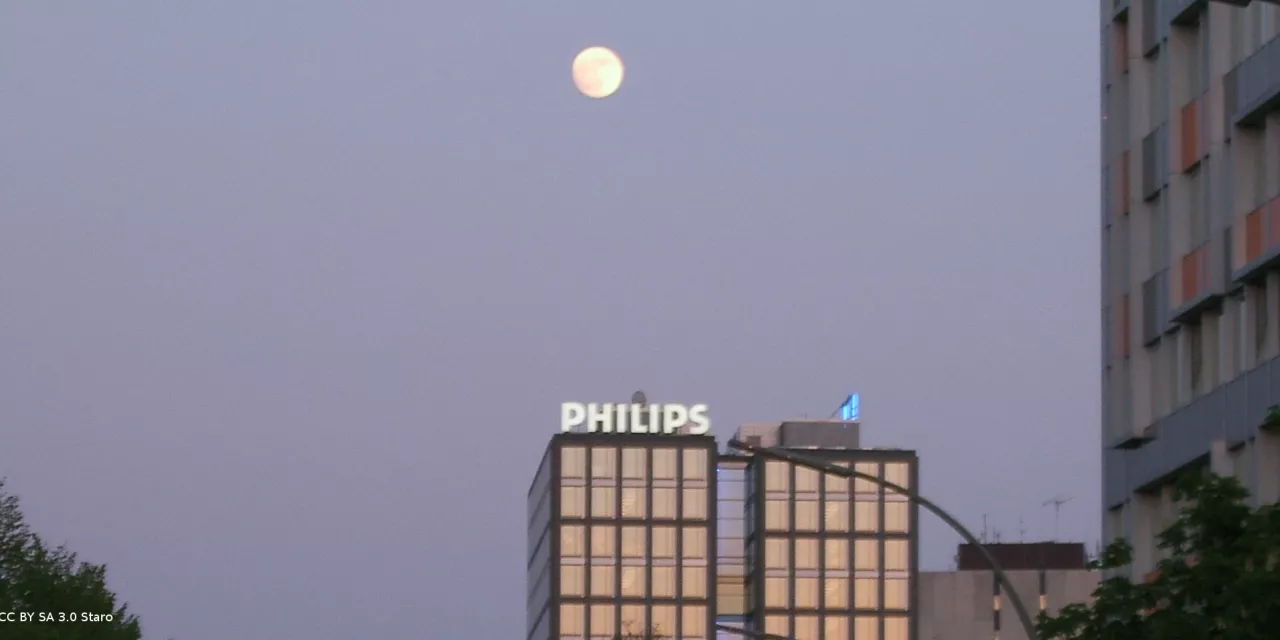The BigBrotherAward 2006 in the category "Technology" goes to Philips GmbH Consumer Electronics Division, represented by CEO Mr Ronald de Jong, for the specification that CD burners write their unique serial number on CD‑Rs and thus facilitate traceability of storage media to the individual burner.
With the introduction of recordable CDs and the required burners, the so-called Orange Book Standard was created. This document describes the technical processes and design parameters that a recordable CD and the respective CD drive must follow. A major player in setting down these standards was Philips with its consumer electronics division. The division complied — thus the story goes — with demands from the entertainment industry and introduced unique markers of home-burned CDs into the specifications. From now on, all new burners were to leave their unique serial number on the CD during the burning process.
With this serial number the entertainment industry hopes to trace “bootlegged” copies of music and other copyrighted CDs, i.e. unlicensed duplications of storage media, in order to be able to prosecute the bootleggers. In actual fact, though, the burnt-in code leaves a data trace that might give all CD creators a difficult time of explaining themselves. The user of a burner is not warned of this fact, and burner producers are not forthcoming in declaring which devices write such a code on media. But the dangers are obvious: Anonymous sharing of data is no longer possible — copies can be traced back to the device with which they were made. A similar feat was already recognised by the Big Brother Awards jury in 2005, when they honoured secretly printed codes from colour photocopiers.
Regular visitors of German cinemas know the advertisement spots from ZKM Kinomarketing: “Bootleggers will go to jail for five years!” What is not said in these spots is that this is the maximum penalty for criminal breach of copyrights on a commercial scale. Those who ever went to a market place in Eastern Europe or Asia will know what is meant here: Professionally made bootleg copies of music, films and software are sold there in vast quantities. These CDs, though, are mass-produced in professional CD-pressing works. Without the serial number of the machine, naturally. Production with a home CD burner would be far too time-consuming. So the Philips technology doesn't help here. It only affects the private user.
Let us state it clearly: It is not a punishable offence in Germany to burn, i.e. copy music CDs for private use. Even if campaigns from the entertainment industry would like to paint a different picture. The law only says that technically effective copy protection measures must not be circumvented, and the music must not come from an “obviously illegal” source.
Through a fee on empty storage media, which is included in the retail price of recordable CDs and CD burners and goes to the German copyright collecting agency GEMA, originators of copyrighted material do even get compensation. There is, therefore, not the slightest reason to attach this quasi-secret mark to the CDs. Nevertheless, many devices continue to write the code on discs — because it is specified in the Orange Book Standard.
We heartily congratulate you, Mr Ronald de Jong from Philips, vicariously for all producers of CD burners that leave a serial number on CDs.
Footnote:
Technically speaking, the recorder identification (RID) is placed in the so-called “sub-code Q channel”, which also contains information about the running time of a piece and song titles. The RID consists of three characters to identify the producer, four characters for the model and (at least) five more for the serial number of the individual device.
Laudator.in





